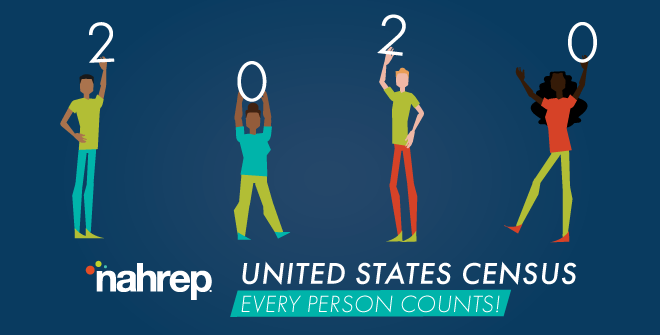The U.S. Census happens every ten years and is a head count of every person living in the United States. The Census determines how many U.S. Congressional representatives a state will have, how much money the U.S. government allocates to things you and your family benefit from such as roads, schools, firefighters, hospitals and healthcare clinics. As realtors and small businesses owners, it is important to know that census information is used in city planning ordinances that determine where new homes and businesses are built and how much is invested toward improving neighborhoods.
Historically, there has been an underinvestment in neighborhoods with high Latino populations. This is because Latinos have been undercounted in the census for decades, disadvantaging their families, communities, and neighborhoods. Latino children in particular are among the most undercounted populations in the United States. This is why we need your help.
This year, in 2020, will be the very first time you’ll be able to fill out the U.S. Census completely online. It has never been easier.
What kinds of questions does the U.S. Census ask you?
The U.S. Census asks simple questions that informs who is living in your house that year. The form will ask for the names, ages, racial and ethnic background of every individual living in your household and whether or not you own or rent your home.
The Census does not ask questions asking for your citizenship status, social security number, bank account information, account passwords or political affiliation.
Much of data included in NAHREP’s State of Hispanic Homeownership Report comes from the information collected in the census. Through census data, NAHREP is able to track the Hispanic homeownership rate, household formations, population growth and more.
Is my information private?
Yes, by law, the U.S. Census cannot share any information about you, your family or your household with anyone, not even law enforcement. A violation of this law is a federal crime, punishable by time in prison and/or a fine of up to $250,000.
How does the U.S. Census relate to real estate professionals?
The U.S. Census dictates decision making at all levels of government and by local and national businesses. The U.S. Census is used for:
- Attracting new businesses to a community
- Forecasting future transportation needs and projects
- Planning for hospitals and health services
- Forecasting future housing and development
- Drawing school district boundaries and school project planning
- Establishing fair market rents and enforcing fair lending practices
- Planning urban land use and zoning restrictions
- Determining areas eligible for housing assistance and rehabilitation loans
- Attracting new businesses to a community
- Forecasting future transportation needs and projects
- Planning for hospitals and health services
- Forecasting future housing and development
- Drawing school district boundaries and school project planning
- Establishing fair market rents and enforcing fair lending practices
- Planning urban land use and zoning restrictions
- Determining areas eligible for housing assistance and rehabilitation loans
Having an accurate count of all community members is critical for that community to have access to the resources it needs to thrive. And, as we know, a thriving community means a stronger housing market.
What happens if you don’t fill out the U.S. Census?
Starting on May 27 through August 14, interviewers with the U.S. Census Bureau will be deployed to follow up either in-person or by phone with households who have not yet completed the survey. With the COVID-19 pandemic, only certain communities will have U.S. Census takers visit their homes. Where it is not safe to do so, a series of follow up calls will be made over the phone.
With the limitations in collecting data this year, it is more important than ever to ensure that everyone in your household and community is counted.
What NAHREP asks of you:
We know NAHREP leaders are influential in their communities and with that comes responsibility. The U.S. Census happens only once every ten years. Please go out of your way to share with your friends, family, clients, coworkers and acquaintances about the importance of taking this survey. Help your friends and family that are less tech-savvy to fill out the survey online and ease the minds of those that are worried about privacy or immigration status.
Latinos are the engine behind the U.S. economy. However, we have to be counted in order for the proper investments to be made to our communities so that Latinos can continue to thrive. We won’t get another chance for another ten years. Don’t sit this one out, and don’t let your community around you do so either.



